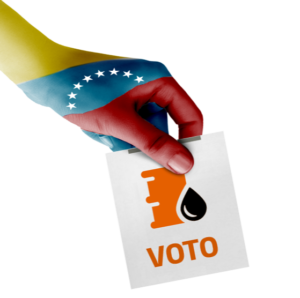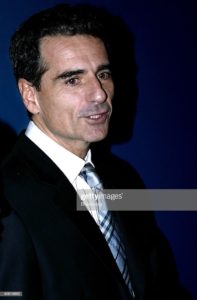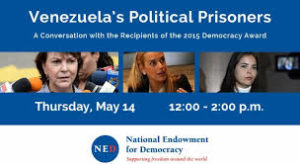 Justin Trudeau’s top diplomat is visiting Havana again, hoping to enlist Cuba’s help in resolving the political and humanitarian crisis in Venezuela, Bloomberg reports:
Justin Trudeau’s top diplomat is visiting Havana again, hoping to enlist Cuba’s help in resolving the political and humanitarian crisis in Venezuela, Bloomberg reports:
Wednesday’s trip to the island by Foreign Minister Chrystia Freeland marks the third round of face-to-face talks with her Cuban counterpart since Canada began pushing, in concert with the U.S. and a group of Latin American nations, for Venezuela’s Nicolas Maduro to cede power.
Her visit coincided with an announcement by Secretary of State Michael Pompeo that the United States has opened an interim diplomatic Venezuela office in Colombia amid internal conflict over Venezuelan President Nicolás Maduro’s attempts to remain in power, The Hill reports:
Pompeo said Charge d’Affaires James Story will oversee the Venezuela Affairs Unit (VAU), which is located at the U.S. Embassy in Bogota, Colombia….. A leaked recording in June captured Pompeo admitting that keeping the opposition forces united in their fight had been “devilishly difficult.”

CHILE – APRIL 25: Andres Velasco, Chilean minister of Finance, arrives for the World Economic Forum on Latin America in Santiago, Chile, Wednesday, April 25, 2007. (Photo by Morten Andersen/Bloomberg via Getty Images)
Venezuela was once the pride and democratic example of Latin America. It can be that once again: a free, stable, and productive country, where citizens live in safety and peace – but only if the international community provides support in at least three key areas, argues Andrés Velasco (right), a former presidential candidate and finance minister of Chile, and Dean of the School of Public Policy at the London School of Economics and Political Science.
- First, it should immediately recognize the need for large debt reduction, rather than attempting to postpone the inevitable for years.
- Second, the IMF and the other multilaterals will have to provide emergency balance-of-payments support.
- And, third, grants will be needed to meet urgent humanitarian needs and to prevent foreign debt from building up too fast once again.
But none of this can happen unless and until Venezuela gets a new, legitimate government with full control of the situation on the ground, he writes for Project Syndicate:
Dialogue will indeed be necessary to end the Venezuelan catastrophe. But the international community should not make the mistake of treating talks as a meeting of two parties of good will in need of friendly encouragement to subordinate their differences. Maduro heads a dictatorial regime that inflicts violence and suffering on a daily basis. The representatives of the National Assembly – Guaidó’s camp – are democratically elected officials who have been on the receiving end of that violence. Talks will not bear fruit unless the world’s democracies apply maximum diplomatic pressure on Maduro.
The recent revelation – confirmed by US and Venezuelan officials – that high-level contacts have been taking place behind closed doors suggests that international pressure is beginning to yield results, adds Velasco.
 In Foreign Affairs, Amalia Perez and Selim Can Sazak write that Venezuelan state assets should be used to help Venezuelan refugees.
In Foreign Affairs, Amalia Perez and Selim Can Sazak write that Venezuelan state assets should be used to help Venezuelan refugees.Westminster Foundation for Democracy (WFD) is seeking to engage an Consultant to undertake a study involving an analysis of the current humanitarian and disaster response, with reference to Venezuela’s legal, institutional and policy framework. WFD has been working in Venezuela since 2016 in supporting activities aimed at strengthening democratic governance and the rule of law in Venezuela, promoting transparency and tackling corruption. All this while addressing issues that are relevant to the needs of the Venezuelan society.
Objective
To undertake a study involving an analysis of the current humanitarian and disaster response legal, institutional and policy framework in Venezuela, comparing these against internationally recognised benchmarks in this regard. The study will be framed around the research questions:
- How effectively do the laws and policies of Venezuela facilitate the coordination, delivery and monitoring of international humanitarian relief and response?
- What gaps and challenges currently exist and what additions, changes and modifications would ensure that the Venezuelan legal framework and institutions are fit for purpose to respond effectively and efficiently to any humanitarian situation?
The study will provide Venezuelan institutions and civil society with a solid assessment of the current legislative frameworks, policies and practices and propose recommendations on reform proposals that can ensure that the State is able to efficiently lead, coordinate and support international humanitarian response to those in most need following the principles of humanity, impartiality, neutrality and independence.
For more information about the programme and key deliverables please refer to the Terms of Reference.
How to Apply
Please send a detailed CVs and proposals for how the terms of reference will be delivered, including a budget, to Luis.Scarcioffo@wfd.org with a subject line “Humanitarian structural review”. Bids will be received up to 10th September 2019. Should you require any further clarification you can get in touch with Luis Scarcioffo via email or by calling +58 (212) 9567605.







